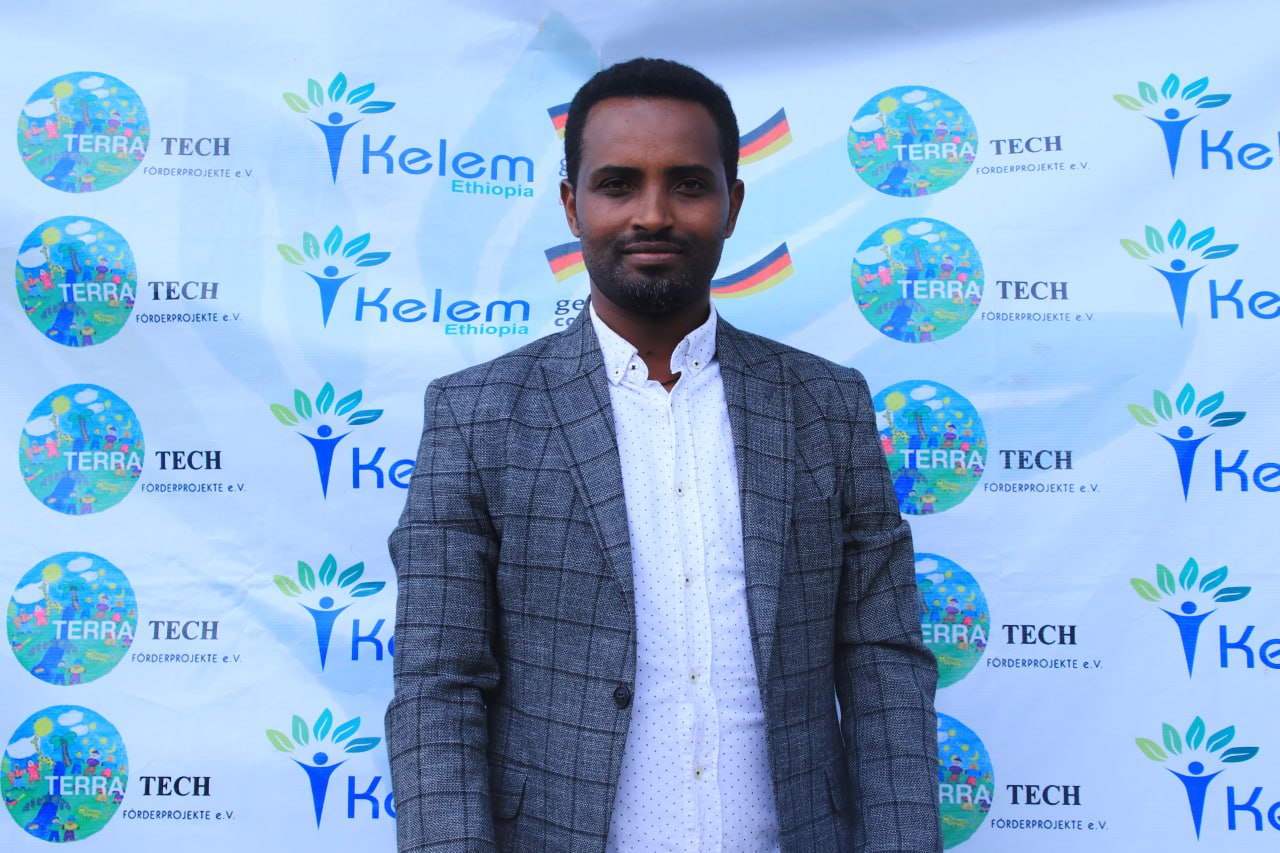In rural Ethiopia, where the majority of the population relies on subsistence farming and natural resources, targeted livelihood interventions are playing a critical role in alleviating poverty and building resilience. Projects that provide training, access to improved technologies, and market linkages are enabling households to increase incomes, strengthen food security, and adapt to challenges such as climate change.
The Livelihood Creation and Diversification (LCD) Project, implemented by Kelem Ethiopia with the support of BMZ, TERRA TECH Förderprojekte e.V., and Aktion Deutschland Hilft, is one such initiative that brings tangible change to farming communities in the Amhara region, specifically in South Wollo.

Irrigation Support: A Game Changer for Farmers in South Wollo
For farmer Seid Mohammed, a resident of Duchi Got, Kalu district, the introduction of an irrigation water pump and training was life-changing. Before receiving the support from Kelem Ethiopia two years ago, his yields were low, and crops frequently failed due to an inconsistent water supply. His harvests ranged from 10 to 20 quintals and only once a year.
“After Kelem Ethiopia provided us with a water pump and training, our production doubled—we were able to harvest up to 50 quintals,” he shared. “The wheat received sufficient water, resulting in a surplus yield.”
Today, Seid is harvesting up to 10 quintals of potatoes from a half-hectare plot and is preparing to harvest another 20 quintals of wheat in addition to wheat. With the ability to irrigate his land throughout the year, his cropping frequency has increased from two to three harvests annually.
Additionally, Seid has begun diversifying his production—growing potatoes, carrots, beetroots, onions, and other high-value vegetables alongside wheat. This diversification has not only improved household food security but also significantly raised his income—from 50,000 ETB to 150,000 ETB annually.

Scaling Impact: 148 Water Pumps Distributed Across Four Districts in South Wollo
According to Ato Getachew W/Aregay, LCD Project Officer at Kelem Ethiopia, the irrigation component is one of the four core pillars of the LCD project. “The provision of water pumps has brought substantial benefits to local farmers,” he explained. “This intervention has significantly improved the livelihoods of farmers like Seid by enhancing productivity and income.” So far, 148 water pumps have been distributed to 669 smallholder farmers across 55 kebeles in the Kalu, Kutaber, Tehuledere, and Dessie Zuria woredas. Additionally, 148 kebeles and team leaders have been trained on pump maintenance and management, ensuring the sustainability of the intervention. Farmers are now able to work their land more efficiently, produce more frequently, and cultivate a greater variety of crops. The growing demand for additional pumps from neighboring communities is a strong indicator of the success and scalability of the approach.


Fruit Nurseries: Cultivating a Sustainable Future
Another promising component of the LCD project is the development of fruit nurseries aimed at reducing poverty and hunger through crop diversification. These nurseries empower farmers in both highland and lowland areas to access quality fruit seedlings, improve good practices, and generate additional income.

Two nurseries, Tekake and Alansha, have been established for highland and tropical fruits which currently hold thousands of rootstocks of lemon, papaya, coffee, and apple varieties such as Jonagold, Fuji, and Pernises. The seedlings are healthy, well-maintained, and arranged in structured planting rows.
demonstrating best practices in nursery and orchard management.
This initiative is expected to enhance agricultural productivity, create long-term economic benefits for farming households, and support the shift toward climate-resilient agriculture. Within two years, we will be able to distribute 54,000 high-market-value seedlings for 5,300 farmers.
A Model for Community-Led Development
The LCD project demonstrates how integrated, community-based livelihood interventions can deliver measurable outcomes in rural development. By combining access to modern tools, capacity building, and support for sustainable practices, the program is not only addressing immediate needs but also laying the foundation for long-term self-reliance and resilience.

With continued investment and expansion, such initiatives have the potential to transform rural economies, improve household incomes, and ensure food security across Ethiopia’s most vulnerable regions.
Thanks to the support from #BMZ (Bundesministerium für wirtschaftliche Zusammenarbeit und Entwicklung), #TERRATECH Förderprojekte e.V., and #AktionDeutschlandHilft, Kelem Ethiopia remains committed to securing the future of farmers through impactful and sustainable initiatives.


